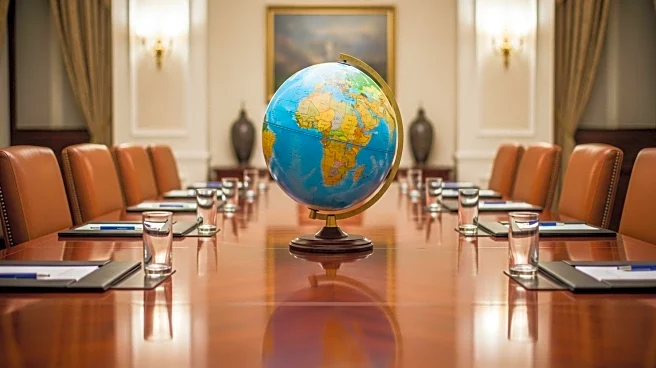What's Happening?
President Trump is set to chair a meeting at the White House regarding the ongoing crisis in Gaza. This comes as Israeli forces have advanced into new areas of Gaza City, specifically the Ebad-Alrahman neighborhood, where tanks have shelled houses, causing injuries and prompting residents to flee deeper into the city. The Israeli military has stated that its operations aim to dismantle terror infrastructure and eliminate terrorists. The situation in Gaza has escalated, with heavy bombardment reported in various neighborhoods, and the Israeli Defense Minister has threatened further destruction if Hamas does not agree to end the conflict on Israel's terms.
Why It's Important?
The meeting chaired by President Trump signifies the U.S.'s active involvement in the Middle East crisis, potentially influencing diplomatic and military strategies. The escalation in Gaza impacts regional stability and could affect U.S. foreign policy and relations with both Israel and Palestine. The humanitarian situation is dire, with significant civilian displacement and casualties, raising concerns about international law and human rights. The U.S.'s stance and actions could have implications for its global diplomatic standing and its role in peace negotiations.
What's Next?
The U.S. State Department has announced that Secretary of State Marco Rubio will meet with Israeli Foreign Minister Gideon Saar in Washington. This meeting could lead to further diplomatic discussions and potential resolutions. The international community, including the UN, is calling for accountability and justice regarding civilian casualties and media worker deaths in Gaza. The situation remains fluid, with potential for further military actions and international diplomatic interventions.
Beyond the Headlines
The crisis in Gaza highlights broader issues of international law, particularly concerning collective punishment and the protection of civilians. The ongoing conflict raises ethical questions about military tactics and the targeting of media workers. Long-term implications include shifts in regional alliances and the potential for increased global advocacy for Palestinian rights.










